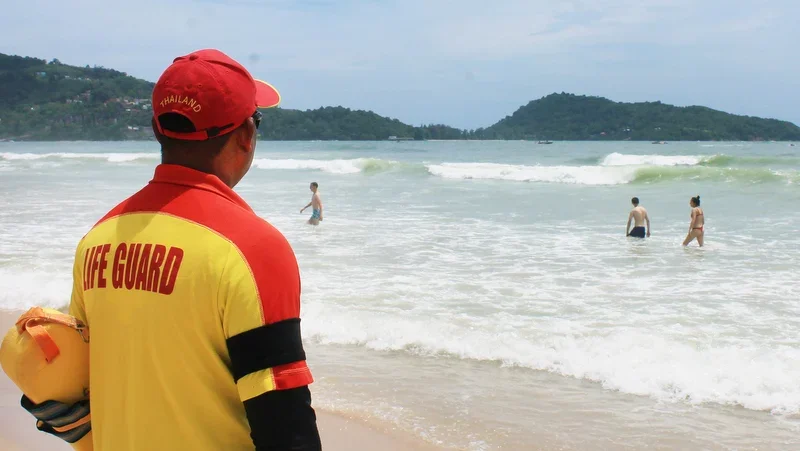
There are without a doubt many reasons why people choose Phuket for their home, but the fact that it juts out of the clear blue waters of the Andaman Sea usually plays a role. It is simply the type of place that tropical daydreams are made of. The water is warm and often inviting with many ways to enjoy it. Everything from simply island hopping on boats to freediving and scuba, fishing, surfing, kiteboarding, foiling, an afternoon swim, and more.
As those with ocean experience know, the number one rule is to always respect it. In the context of this discussion, this means respecting the power of the ocean for your self-preservation. Probably one of the most common ways people get into trouble is by underestimating ocean conditions. During the monsoon season (about April-November) strong onshore winds whip the Andaman Sea into a frenzy. When the waves are two-meters-tall and pounding relentlessly, it’s pretty obvious that some challenges may exist. However, due to tidal movements and unseen undercurrents, the sea can be unforgiving even when the waves are small. Especially during this time of year, swim only in the lifeguard-designated swimming zones. When there are waves, it can be difficult for lifeguards to spot swimmers in trouble and they will focus their efforts on the swim zones. Additionally, outside of the swimming zone is where surfers and other watersports will be out and you put yourself at risk of getting hit by them.
Whether you’re heading out for a snorkel, paddleboard, or kayak, the bare minimum you should do is let someone know where you’re going and when you expect to be back. In the unfortunate event that something happens then at least it is known where to come to find you. Be aware of the wind – a stiff offshore wind may make it difficult or impossible to get back to shore, especially if the tide is working against you. If renting equipment, make sure a kayak is in good shape and the drain plug is tight, and that a paddle board has a leash. Never go out on a paddleboard without a leash! If you fall off even a light wind can blow the board away from you faster than you can swim to retrieve it. It’s a good idea to bring a cellphone with you too. Nowadays many phones are waterproof or simple cases are cheap. If you head out on the water often, get a simple, cheap phone to bring along with you and know who to call if you get into trouble.
An increasing, and alarming, occurrence is to see swimmers heading far from shore at beaches. Sometimes it’s just a couple floating around, but usually, it’s people swimming distance for exercise. This is all well and good, but the vast majority of the time they are not using a buoy to alert passing boats. If roaming more than 20 meters from the shore, it is very important to swim with a surface marker buoy. These can be bought inexpensively at dive shops, Decathlon, or online, or you can easily make something yourself at home.



















